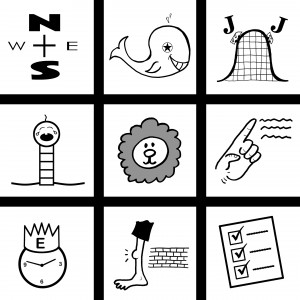 David’s family portrait was ripped down the middle in the latter years of
David’s family portrait was ripped down the middle in the latter years of

his life. Many of the problems were traced to an incident with his son Amnon, who lusted after his half-sister Tamar. He tricked David into sending Tamar to nurse him to health when he was sick. Amnon raped Tamar, and David was too hurt and embarrassed to intervene. Tamar’s other brother Absalom was so disgusted with David’s inaction that he killed his sibling and fled. Absalom eventually tried to overthrow his father, but David’s general, Joab, killed him. Meanwhile, David’s younger son Solomon was observing the family dysfunction from the shadows. God was calling out to all of them, “Return to Me!” On David’s death bed, he anointed his son Solomon as the next king. He told his heir that God wanted Him to build a temple for worship. David laid out the plans, raised the money, and told Solomon to lead God’s people back to God’s grace, wisdom, and commandments.
As the new king, Solomon, like his father, led the people back toward trust – initially. God appeared to Solomon one night and offered him an amazing gift saying, “Anything you want I’ll give you.” Solomon had lived through the family pain of his father, brothers, and sister. He didn’t ask for money, status, or love. He grew up with wealth, power, and status, but saw his family experience deep, heart-breaking pain. Instead, Solomon asked for God’s wisdom to live his life. God was so pleased by the request that He gave the king not only wisdom, but money and

influence too. One of the most famous examples of Solomon’s wisdom occurred when two women came to him arguing over who was the “real mother” of a disputed child. Solomon proposed solving the problem by cutting the baby in half. One mother quickly offered to “give” the child away rather than have him killed. Solomon discerned wisely that this must be the real mother. The child was given to her unharmed. The king’s wisdom became legendary around the known world.
The pinnacle of Solomon’s leadership was the glorious temple’s construction. Based on David’s plans, Solomon’s temple was the most amazing worship center in Jerusalem’s history, drawing people in droves to receive forgiveness and guidance from God.
During his reign, Solomon wrote three books of the Bible. He recorded much of his wisdom in a book called Proverbs. This book shares the importance of God’s guidance and philosophies on a variety of subjects. He warns us of the pain that can be caused in your relationships by lust and adultery. He warns us of the temptations of gossip. He teaches us about Godonomics: how our Father wants us to view money, generosity, and work. He teaches his children how to produce, profit, save, and invest. Solomon challenges us to be radically generous with our money, and entreats people to express love to God by giving Him the first part of every paycheck rather than just the leftovers. Solomon teaches us how to be good parents and train up our children in God’s truth.
Solomon wrote a diary during the courtship of his wife called the Song of Solomon. This intimacy manual encourages chastity before marriage, telling us not to “awaken love until its time.” God’s view of intimacy and sexuality is so high, so pure, and so sacred, that it must be expressed in the context of a long-term loving marriage

covenant. Solomon teaches how to overcome disagreements in marriage, giving examples from his own relationship on how to communicate effectively in the bedroom. He gave us God’s wisdom for making the second half of a marriage stronger than the first. In contrast to many people’s belief that God is prudish about sex, the Song of Solomon paints a visual, passionate, and loving portrait of intimacy in marriage. This book, a poem, was written by both Solomon and his wife in the format of an ancient play.
Later in his life, Solomon wrote another book called Ecclesiastes — detailing the thoughts and yearnings of a mid-life crisis. In the book, Solomon reflected on how meaningless everything seems without God. Solomon ignored his own wise Proverbs and tried to fill the God-shaped hole in his heart with pleasure, status, beauty, and money. He accumulated everything. He consumed everything. He tried everything. He found that his soul was unsatisfied by all the trappings of success, pleasure, and status. He came to the conclusion that “God placed eternity in our hearts,” meaning we have a longing for something everlasting to satisfy us. He learned that putting God first is the only way to give us lasting peace and real significance. He realized that “running from God” — and engaging in distractions, even good ones — never fully satisfy. We were created to thrive in relationship with our Heavenly Father. The human soul runs on God’s love like a car runs on gasoline.
Solomon built a great kingdom; but God warned him of two things: “First, don’t make treaties with nations that are running from Me. Second, don’t marry more than one woman.” God gave Solomon this wisdom, because he wanted his life to be filled with joy. Solomon showed his love by daily seeking his Lord’s wisdom for building the kingdom. He was so filled with thanksgiving to God that he built the Temple, a magnificent tribute. Yet Solomon too eventually ran from God.
In that time, it was common practice for a king to marry the daughters of neighboring monarchs as protection from attack. Ignoring God’s advice, Solomon decided to engage this practice at a rampant pace, marrying multiple wives and taking concubines by the hundreds. Each of these wives came from a culture with differing religions and gods. The wives eventually convinced Solomon to worship their gods too, and the ruler’s heart was divided. It was no longer aligned and in love with the God who gave Him everything. Instead, Solomon was double-minded, allowing women and treaties to divide his heart. After years of warnings, grace, and mercy, Solomon’s kingdom was divided in two. The themes flowing from God’s heart continued. He whispered, “Trust Me” throughout the years of rebellion. He warns and longs for every one of us to “stop running and return to Him.”
Here is a live teaching of Fast Track: 1 Samuel – 1 Kings
For a free session of Godonomics, visit: http://www.godonomics.com/watch-session-5

